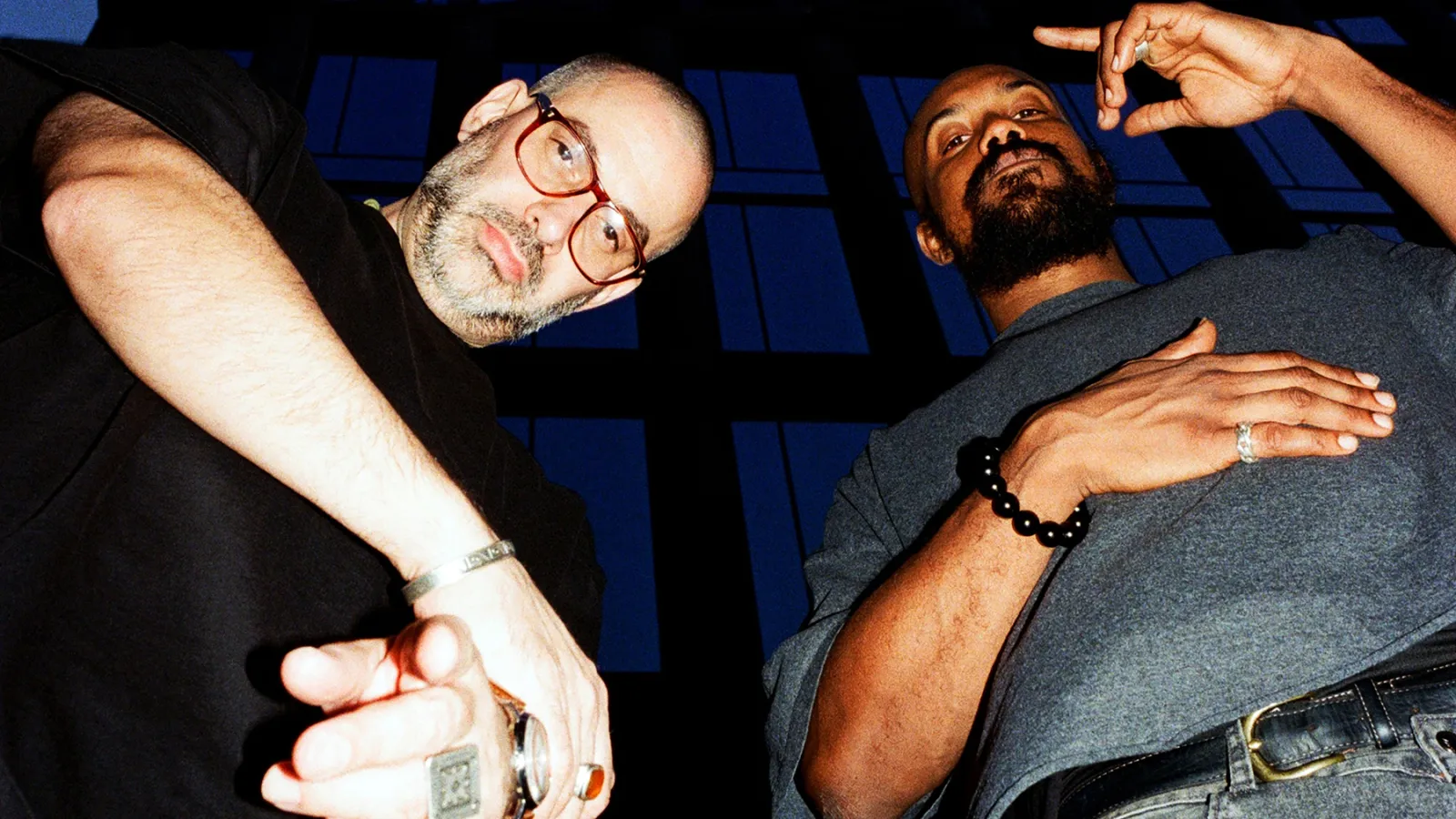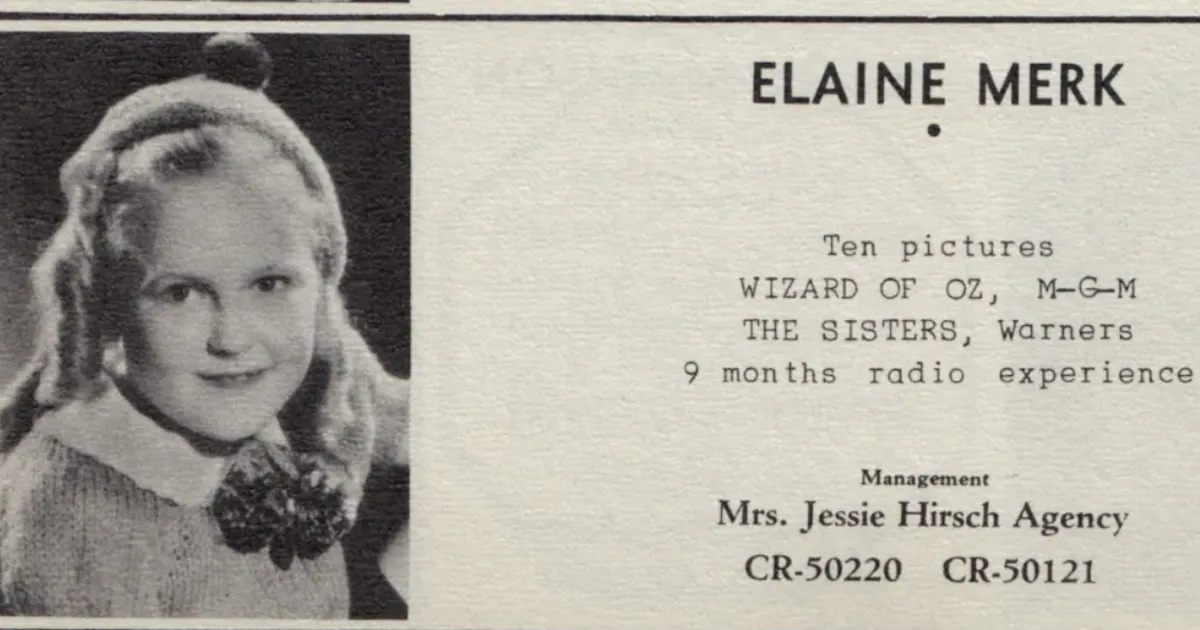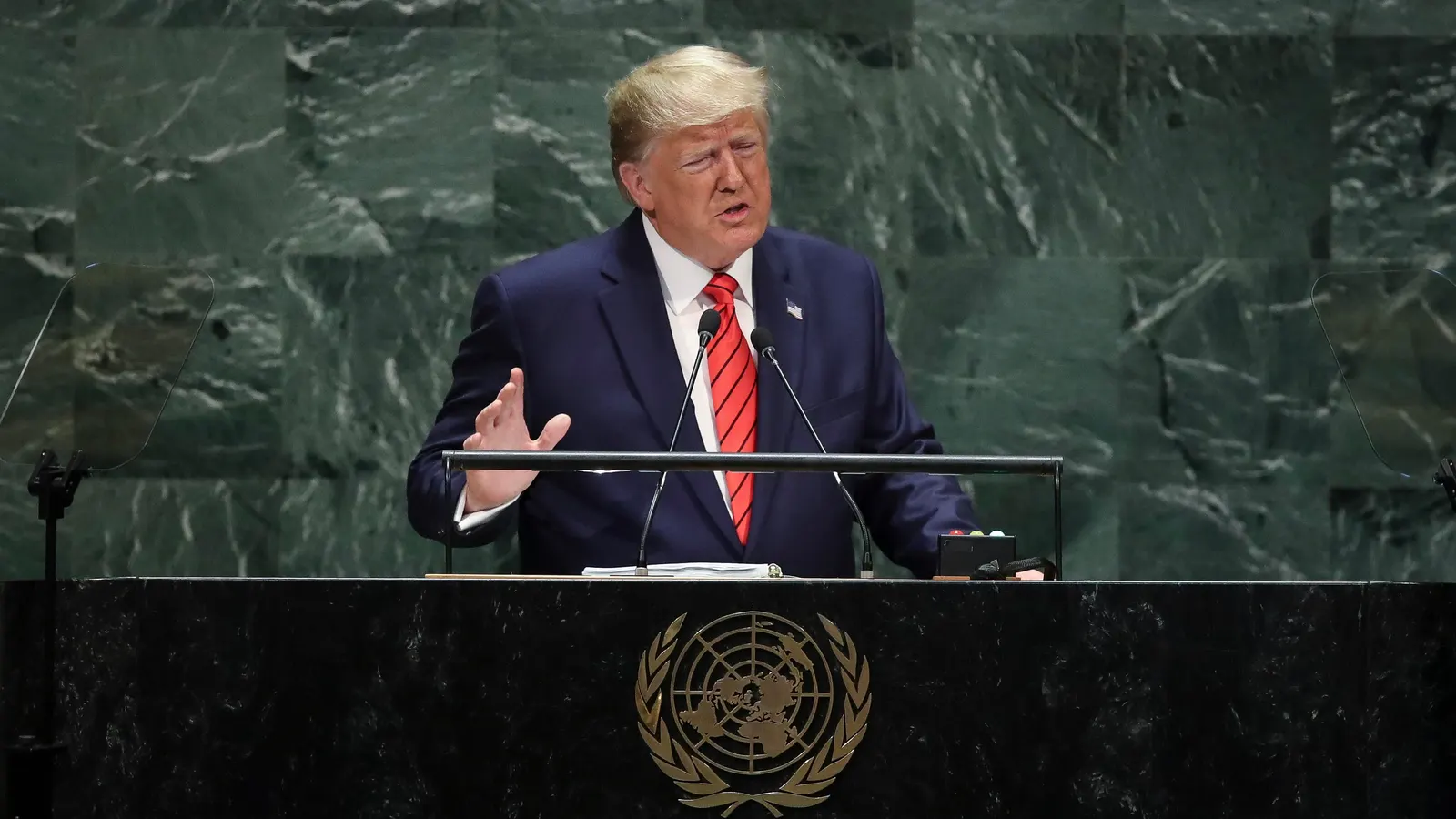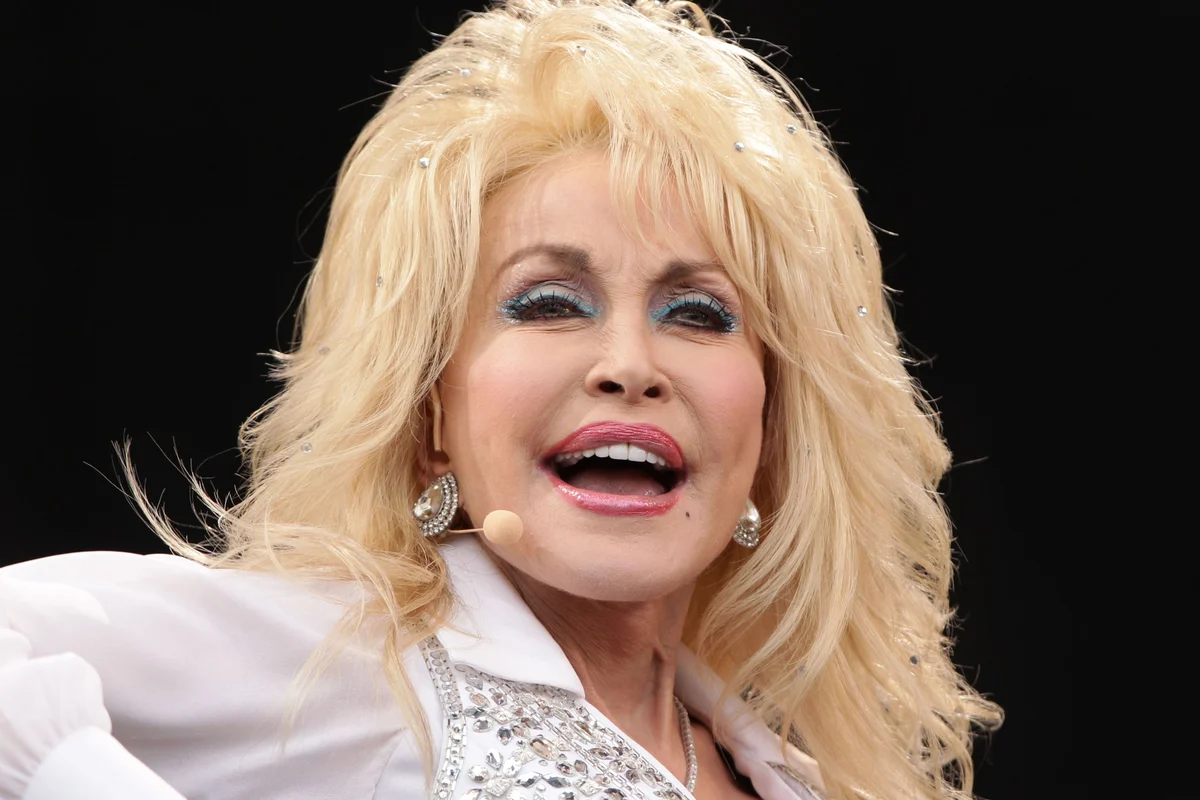
When I catch up with Gabe ‘Nandez and Preservation on Zoom, the former tells me he’s mulling whether he’s going to continue on billy woods’ national tour. He was set for certain dates (including a ruckus set at New York City’s Knockdown Center), but he may head out for a couple more shows in other cities. Either way, he said he already had a great time performing Sortilège, his new project with producer Preservation, out on indie stalwart Backwoodz Studioz.
It’s the first collaboration between ‘Nandez, a talented, internationally-raised lyricist, and Preservation, an accomplished producer who’s worked with a who’s who of respected lyricists over the past 20 years: the late Ka (as Dr. Yen Lo), woods, Mach-Hommy, GZA, Raekwon, MF DOOM, Jean Grae, Quelle Chris, Aesop Rock, and Yasiin Bey. Along with crafting songs for Bey’s Grammy-nominated The Ecstatic album, he’s also the legendary MC’s tour DJ. ‘Nandez was in the first installment of No Filler for his Object Permanence album, and has said that he’s since grown more intentional about refining his bars. That growth is reflected on Sortilège, which was crafted after the two initially connected via “Sauvage” on woods’ Aethiopes, which Preservation produced.
The two quickly built a rapport, and Preservation began sending ‘Nandez beats, eventually inviting him to New Orleans to hang out while devising the project’s sonic core and predominant themes. Though the two say not every day bore fruit, they often enjoyed a recording process similar to what happened with the searing “Mondo Cane” which features Armand Hammer, the duo of woods and ELUCID.
“[Gabe] was listening to the beat, and then he would leave,” Preservation reflects. “And then I would imagine he was jotting some things down, and then we’d come back the next day and we start over. We’d do something else or maybe add on to that beat or whatever.” He adds, “There were those magic moments where it’s like, ‘Oh, this fits perfect here and this could come out of this into this song.’ Perfect kind of action points. Sometimes they don’t happen. It takes patience.” Their fortitude resulted in a thoughtful, lyrically dense project that ‘Nandez likens to a collection of personal and political anecdotes rapped on production that Preservation built around ‘Nandez baritone vocal tone.
Editor’s picks
How’s the tour for y’all so far?
Gabe ‘Nandez: It was dope. Yeah. I went dolo, me and Pres did one show, the New York show. But those [other] dates I did. It was so much fun and people really pulled up.
Was the dynamic any different performing this album?
Gabe: Yeah. [The] energy was different. The amount of people it reached was different. This is my first Backwoodz release. Reach was different. The way the beats are mixed is different. It was just different. But it was fun though.
How so?
Gabe: Me and Woods were talking about this, but he was talking about specifically how [Preservation’s] mixes and bounces [are] distinct. [It] knocks live, it rides out live. So there’s that, but also fundamentally just the energy of the moment. I’m looking in the front, and people knew the lyrics and shit. I was like, “Oh, this is pretty dope.” The energy of two very strong albums coming out with Golliwog and Sortilege, joining forces for a few nights to just roll that out. There’s a lot of energy in there. It wasn’t just another show, There’s a certain element of history to it. You could feel it.
So y’all linked up after collaborating on “Sauvage” on billy woods’ Aethiopes. What was it like building that rapport initially?
Gabe: It was familiar in the best way. We got along very naturally. It went from a quick DM to a phone call to a few phone calls, to one in real life conversation, phone calls, [then a] trip to New Orleans. I just felt seen as a person and artistically as a writer, and then the personal temperaments and all that, they gel together. [It was] a quick synergy.
Related Content
Preservation: There was a familiarity. You’re like, “Oh, I know where you’re coming from and I can relate to it.” We just kind of clicked. I sent him some beats. He sent them right back. But then I was like, “You got to come down to New Orleans,” [which] made the energy of the record, stepped it up to where it needed to be.
Because of that in-person energy?
Preservation: Yeah. I always feel that when you collaborate with someone in person, you come up with ideas on the spot instead of guessing what that other person wants. Ideas form quickly on the spot. And then also being specific, this city has got a lot of energy, spirit, [and] musical history [which] seeped into the album.
Gabe: I think the history of New Orleans, the different cultures that went through it, some of them even relate to my background. West African influence there, Haitian influence, where I used to live. There’s a Francophone [influence] which we both share. It was just cool. Reading about different things and streets. I remember we went to this voodoo shop…I am really into that kind of stuff, [the occult] seeps into my music. And to have a North American city where that’s accessible for you to see..there’s museums and shit. There’s a feeling there. The way things happened when I was there too, I’m not going to get into it, [but they] definitely translated on the album. We weren’t even conscious of it while we were doing it, but it’s looking back like, “Oh shit!”
Preservation, is that your general process, locking in with the artist in person and trying to figure out the thematic core?
Gabe: I like doing that. It doesn’t happen all the time, but yeah, most of the time I try to. I think it brings it to a more special place.
How has travel historically affected your creative process?
Gabe: It’s a very big part of what informs my writing process. Someone told me on tour, “When I listen to your shit, I feel like I’m some kind of nomad.” I forget how he put it, but he put it real dope. And I was like, that’s ill, because that’s literally what the fuck I do. I walk around New York City, I walk everywhere. I made a list of how many cities I’ve done this in. I think it’s like 28. If I’m ever in a new place, I just walk.
Preservation: I do the same thing.
Gabe: That’s how you see shit. That’s how you soak it in. That just stacks up subconsciously. And then you notice the things that bring us together as people, and there’s more of those. And then the cultural differences. It influences me in ways I can’t even all count. I think a lot of it is probably subconscious.
Preservation: Yeah, walking, speaking to people. When I was on tour with Yaasin, I would make a point to go to a record store and look for records from where we are. I learn talking to record store owners and [learning] the culture through music.
Are there any particular places you haven’t been yet that you can’t wait to get to and take that walk there?
Gabe: I want to go to fucking Mongolia. [Laughs] I want go to the steppe bro, on a horse. Just dolo, nothing. I haven’t been to Asia like that, so Thailand…but Mongolia is really sticking out recently. I think it’s the open step. There’s no people there in that landscape. It’s nature. But in cities, you see people, you see couples arguing. You see kids, you see all their human shit, and it’s just dressed up different. And it’s always fascinating. I find myself doing it alone a lot. And I think that adds another layer. Last time I was in London, I walked fucking 10 hours to get to my friend’s house to go make music just because I was off work and I was doing it dolo. And it’s just a vibe. And also something I like to do is when I’m in these different places, kind of dress a bit more according to where I am. So people just think I’m from there and shit. People are asking me for directions. I’m like”….” [Laughs.]
Gabe, you’ve said you learned a lot from Preservation. What are some of the most interesting things?
Gabe: Things that are affirming. Sometimes it’s the most powerful thing when I’m listening to someone who’s been either doing something I do for longer who might be further along in life, whether that’s time or whatever else. It could be little things, like the things they don’t say in response to something, or the things they do say that confirms something I may have already felt, but maybe wasn’t sure. [I’m] proud and happy and honored to be able to say that Pres is not just a friend, I consider him a mentor, someone I like very much listen to. And in instances like that, I was asking him questions every two minutes about random shit, all types of shit.
But also just anecdotal stuff that I learned, techniques that he uses personally. And just watching him make beats was dope too. I’ve seen people make beats before, but I mean, Pres’ process of producing is so tedious. I was getting tired watching him. The amount of care and just meticulousness that goes into something and then sometimes you don’t use it.
Preservation: There was a lot of the time [where] what I was trying to do was not where I wanted it to be. And you stop and you start over, or you come back the next day and you start over, and then something just clicks. And then we look at each other and it’s [like, “that’s it”]. “Mondo Cane” was one of them. It was an automatic, “I’m happy. I see you, you’re happy.” I’m seeing the wheels start to turn. It was almost like I could see him writing in his head already.
When did the idea to get Armand Hammer on there come about?
Preservation: Right away. We had another person in our mind as far as the hook was concerned. But Benjamin was perfect for it.
What’s the story you wanted to tell on this project?
Gabe: I didn’t really have a particular single one. Most of my work is anecdotal and it’s about many things. Initially I wanted the title of the record to allude to that, to the fact that it’s about many standalone things. Some records I’ve gone into diplomacy. My first full-length, it was like, “This is the story of my life.” Up until this point. That’s what it was. It was super personal. So all that to say is that wasn’t my mindset making these.
And like we said, what’s wild about it is everything came in hindsight. I remember Pres at one point, we were trying to find the title. He was like, “Yo, it’s in there. It’s in the song.” Not necessarily the title, but the thematics. Sometimes you work on an album, you have the title first. Sometimes you have it after. This was interesting because the title came after the whole thing was done, and it circled back to the themes on the album perfectly.
Preservation: Your initial title choice was speaking on what you just said
Gabe: Proverbs. Wanted to call it Proverbs, and not as a Bible reference, but as maxims, axioms, in Eastern philosophy, they have four little haikus and shit. We wanted to go somewhere else with it. [On] a song like “Muay Sok,” I’m talking about Thai boxing in the first couple bars, and then I hit some semi-existential whatever. Or “Bacinet,” I’ll have an anecdote about some stuff I did and then some open-ended stuff. So that’s my approach to writing though. But that’s the school of rap I come from. DOOM did that a lot. That was one of the guys who I studied religiously coming [where it was] just free verse. Everything is mixed in, and it’s like jazz kind of.
Where do y’all feel you’ve grown the most in your craft over recent years?
Gabe: I would say mindfulness and intent and focus, which I’ve always had. But I’ll edit myself more now. I won’t censor myself, but I’ll edit myself more than I used to just on some, “I’m still going to say this, but let’s think about maybe a different way to say it.” [Also] just sheer speed. Writing is, even if this verse doesn’t see the light of day, I’m just going to write, I’ll pick a beat that I like, and [decide] “let’s write.” Writing is the exercise. Let me make sure I’m doing this. And that’s lent itself to being able to write faster, which is dope because I didn’t always have that. I was never a slow writer, but I picked up the pace on how fast I’m able to write. Oh, and I found the direct connection between how to live my life and how to fuel my writing process, so I know what I have to be doing in real life in order for my writing to be compelling. A lot of it is interacting with people. People come into my life and I’m like, “Yo, let me just talk to this person.” And that unlocks things, and they’ll say a thing. People are fucking interesting.
Preservation: [For me, I] focus on details a little bit more. Really trying to push the song or the album to the best point we possibly can. Focusing on the little details that will step up the song and bring out certain things that the singer or the MC wants to convey. Just those little notes and moments that pop the word out to you. I feel like arrangement has always been my love, but I just feel like I’ve been getting better at it every project.
Outside of sample choices and rapping in French, how would you say that the fingerprints of French culture and history are reflected in the project?
Gabe: Even as far as the album art, the hat that I’m wearing is a Fulani hat. I’m a quarter [Fulani], my mother is half [Fulani], it’s an ethnic group in Mali. And then obviously [it’s a] former French colony, which is why I speak French, which is why she speaks French. I would say there’s a lot of allusions to France and all its former territories and just francophone culture, whether it’s in Caribbean or whatever. The first track references the dry, windy season in West Africa. I do [“Nom De Guerre”] with my boy Ze Nkoma Mpaga Ni Ngoko, who is from Gabon. He raps in French. So that part of Francophone as well [is] peppered in there.
Yeah, I was wondering how “Nom De Guerre” came together, specifically the idea to rap in French.
Gabe: From the beginnings of the record Pres was like, “Yo, we should do a joint in French.”
Preservation: Even before the record. That was the one main kind of things, when woods put me onto Gabe, he sent me some stuff. I was like, “Oh, he’s ill.” So he put him on “Sauvage” and then I was like, I didn’t hear him rocking in French on of the songs. I was like, that’s a connection right there. So when we met, it was just an automatic speaking French-English kind of mix up. Even before we started, I was like, “There has to be some kind of French on here at some point. Just would make sense because we both have that in our background.” Initially it was a different song [and] beat, and then I found something that worked even better and [found] those little French samples that worked with the verses.
So as of now, are there any plans to perform the album in France or in another heavily French-populated area?
Gabe: Nothing booked or anything, but I think, yeah, definitely. Maybe next year or something, I’ll kind of see what happens as it keeps living. I already seen some people on the Backwoodz page being like, “Yo, come to Dublin, come here.
Preservation, you’ve done a lot of collaboration albums. When you’re making beats, how often do you make beats for the sake of making beats and send out beat tapes? Or is your work geared specifically towards projects with artists?
Preservation: Initially, you got to make beats for yourself. For me, it’s a form of output, therapy, whatever you want to call it. You got to enjoy it. And once you start building relationships with people and then you could [think] like, “Ooh, this could fit with this person’s cadence,” and you listen to their vocals. I think that’s what I was doing a lot with Gabe. He has a unique kind of vocal tone. I was listening to the beats with his voice in the background, and then making sure that there is some kind of connection there with the tones of the samples, the beats, and his voice. So at first, yeah, I’m making stuff for me and then collecting a catalog. And then once I connect with someone, I start give them a few and then see what they gravitate towards. And then I make tracks for the album. There has to be some kind of centerpoint, then I grow from there.
Were there junctures on the album, toward the end, where you added final components?
Gabe: The intro. The first track is me playing this technically Central Asian instrument. Turkish. It’s from Kazakhstan as well. There’s variations of it across that region. It’s called the Bama, and I played it for that first song towards the end.
Preservation: He sent me a video playing like, “Yo, look what I just got.” And he’s just killing it. [Laughs] I’m like, it’s crazy. You should use this because it fits what we’re doing.
Gabe: “Morning Star” came towards the end [as well].
Gabe, I was reading a prior interview with POW where you were discussing wanting to make a movie one day. I was wondering where things are with that?
Gabe: Holy shit, I forgot. I really wanted to at one point, now I’m still into it, but it’s definitely took a back seat. But yeah, kind of a film where I’m in it and a bunch of people I know are in it and we’re just playing ourselves, so no one’s acting really. I don’t know. I had that idea. And then also I wanted to do a film about addiction where it’s kind of like the same setup. I’ve been leaning more towards that. But I don’t know what that film would be about, but that would be the setup where it’s like people I’m actually close with. There’s journalists in it, there’s rappers in it, there’s producers in it, there’s photographers in it, and just the hustle. That would be the premise.
Do you feel like you get to exercise that visual skillset with your music videos?
Yeah, for sure. A lot of my stuff is, especially the more guerilla shit I’ve done, it’s always mad fun. I’ve just always been big on a good, when it works, there’s a time and place. SMACK DVD videos, that’s my shit. Prodigy, Jadakiss, Sean Price, rapping on camera and doing it well. That shit educated me. So being able to recreate that has always been fun. And then, yeah, some more conceptual videos I’ve done. I’m pretty hands-on with all the shit.
Preservation: “Shadowstep” and “Ball&Chain” is super cinematic. There is a storytelling quality to those [that] I think came through perfectly. It’s a great addition to the project to have those visuals.
Gabe: “Shadowstep” is a great point to bring up because that’s the closest to full-blown acting I’ve done on camera, and a lot of that was pretty much all Marley, the director’s vision. But that was fun. It’s cool, it’s art, it’s all encompassing, it’s holistic. I’m into that. It doesn’t have to just be one medium. It could be several.
Here are three more dope projects to check out:
Jay Worthy, Once Upon A Time
Earlier this year, Rolling Stone spoke with most of the artists who performed during DJ Hed’s set at Kendrick Lamar’s Pop Out concert, including Jay Worthy, who hinted at a slew of new music in the works: executive producing projects, as well as working on his own collaboration and solo albums, such as Once Upon A Time. Act One of the two-part project dropped on September 26, with the second half scheduled for October 10. Like Westside Gunn and Future before him, Worthy is vying to stretch the resonance of his project with installment releases, and for good reason. The first half of Once Upon a Time is a winding work with impressively disparate moods that vaults him even higher up on hip-hop’s “ear for beats” board.
At his best, the Compton-based artist is a game spitter who knows his way around lush, funky production. He’s in that wheelhouse for most of the beginning of the album, which starts with author and former drug dealer “Freeway” Rick Ross talking about seeing Worthy’s rise to prominence. After the rags-to-riches tone is set, the album delves into the smooth “96 Big Body,” where Jay Worthy samples Tupac’s classic “96 Big Body Sittin On Chrome,” and affirms, “if Pac was still alive, swear to God that he would feel me.” He just might be right, as Worthy specializes in the type of smooth, rider music that’s perfect for cruising down the Pacific Coast Highway, such as “2 Pz” with Larry June.
He’s also tapped into West Coast rap history. On “For The Homies,” produced by DJ Quik, he raps, “this remind me when Quik rapped about Noopy,” referring to Quik’s 1995 track, “Safe + Sound.” Worthy’s so good at providing an updated take on classic West Coast sounds because he’s a fan and student of it.
But beyond the subtle menace of smooth tracks like “The Only One” with Kamaiyah is the Leven Kali-produced “Open Minded,” a swerve from “the ism” where Kali croons to a significant other before Worthy handles the bars. The track is an aptly titled glimpse into his musical range, which bodes well for him as an executive producer going forward. That’s also the case with a pair of posse cuts with artists boasting different specialties. “FTJ” pairs Jim Jones with E-40 (and Wiz Khalifa), while “Outcome” matches Ab-Soul with Dave East (as well as Westside Gunn). These aren’t, but the Harry Fraud and Alchemist-laced beats serve as fertile ground for everyone. The well-rounded project bodes well for what Worthy is planning for Act 2 of Once Upon A Time.
Kelly Moonstone, New Moon
Kelly Moonstone explores the breadth of creative license on her debut album New Moon, a project seemingly crafted as a TV Show chronicling a woman named Suki’s trials of life and love. The project starts with a pair of girls turning on the quirky show about a “normal girl with dreams of taking over worlds” who’s sprung over “some painfully normal guy.” Along with setting the tone for the project, the intro shows that the Queens singer-rapper-producer has a career doing TV themes if she wants it.
Throughout the narratives listeners get a glimpse of what makes Kelly a special artist: her ability to switch between singing and tightly crafted bars, a knack for storytelling, and the vulnerability to yearn during rap and R&B’s avoidant, jaded era — that’s to say nothing of the intimate production, which further draws a listener into the New Moon universe.
The gently crafted, fiercely written project feels chronological, with “Day 1s” serving as a mission statement to her and loved ones, where she raps, “money changes everything and I just need a little/so I can break my niggas off a couple figures” alongside Pink Siifu. And album single “IKEA” is another gentle track where she and Saba depict a relationship where love makes her feel “light as a feather,” as she sings before rapping, as “long as you believe in me I’m strengthened and empowered.” “Nervous” and “BWU” encapsulate the wonder of romance’s first chapter — the latter track relies on a sparkling composition that allows Kelly to croon a simple desire: “I just want to be with you.”
But the mood shifts as Kelly shows off her storytelling chops by rapping about cracks in the facade on the ever-relatable “Thirsty,” and outright conflict on the piano-driven “Law of Equivalent Exchange.” On “Oden,” she defiantly rhymes, “I fed you but instead you chose greed/keep the chump change bitch, I know you need it more than me.” And “Moon Rising” goes super meta, as she plays off her rap name while hovering above the BS and realizing, “I’mma still light up the room.” Is she Suki? Kelly? It doesn’t matter, it’s just good.
And “Happy Ending,” alongside Quelle Chris and Cavalier, is written as melancholy as the sonics, as she culls through her personal turmoil, and affirms her heart on her sleeve as a “mirror to her soul.” Without her firm grasp of that, listeners wouldn’t have a self-aware, resilient project like New Moon.
Recoechi, FLAVAS
“Between the streets and conscious rap, I walk the line perfectly,” Recoechi says on “DA GODLY,” the second track on his FLAVAS album where he proves that affirmation. The 16-track project is a long time coming for Recoechi, a Chicago spitter who came up in the city’s open mic scene before falling into the morass of the streets for a time. He eventually climbed out and now works to rejuvenate his community as a leading figure in the Healthy Hoods organization, where he works with youth and engages in community initiatives — in between rapping his ass off.
Chicago is a leading cultural force, especially in the hip-hop scene. Drill and drill adjacent artists like G Herbo and Lil Durk at time reflect the traumatic toll of the streets; artists like Chance and noname provide a sober-eyed view of the external fallout. Recoechi melds the best elements of street storytelling and conscience, stepping into a role that his generation of Chicago rap has long needed to be filled. And he does so on a smooth sonic canvas that embodies the title FLAVA. Vocal samples dominate the last third of the project, but the bulk of the project consists of smooth, live instrumentation and a choir on songs like “PIE.” The production is lush, but leaves room for his diverse flows and easily recitable hooks to stick with listeners.
On “PIE,” which follows an “American Pie” poem interlude from poet Vai Shakoor, he uses an extended baking metaphor while lamenting, “Feeling like we gotta work harder just for crumbs, leftovers/While they gorge themselves on the sweetness, we’re baked into a rut.” Elsewhere on the track, he also has the humility to admit, “Who am I to criticize, or tries to justifies/When I’s myself feels the high’s/From all in which that I despise.” That self-appraising energy continues on “Giant Leaps” with femdot, where he rhymes, “We are so far from heavenly, askin God for the empathy.” He deftly diagnoses the peril of the streets throughout the project, including on “Feel Some Type Of Way,” which explores a doomed couple’s urges for relief and revenge.
Trending Stories
But he also turns fully inward on album closer “Starving Artist,” where he admits “I was working like 5 jobs trying to make this sh*t happen/And still ain’t got a dollar to my motherfuckin name as I’m in this booth right now.” As more people get hip to Recoechi, that can’t possibly stay the case.



